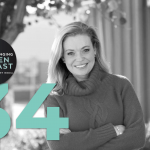On June 16, 2017, Amazon and Whole Foods announced that the online retail giant would be buying the popular natural grocer. The news has generated speculation on all kinds of fronts, including why and how Amazon will use its increased brick-and-mortar presence.
But Whole Foods co-founder and CEO John Mackey isn’t just head of the successful grocery chain; he’s also one of the founders and leaders of the Conscious Capitalism movement. In 2012, Mackey teamed up with scholar and author Rajendra Sisodia to write the book “Conscious Capitalism: Liberating the Heroic Spirit of Business,” which argues for and illustrates how businesses can and should create value for all stakeholders, including customers, employees, suppliers, investors, society, and the environment. Whole Foods has become a leading example of a business practicing conscious capitalism. So this acquisition raises questions not just about the brand itself, but for the movement as a whole.
We caught up with Sisodia by phone to ask him about his impressions of the deal, and what he thinks it means for Conscious Capitalism and those trying to practice it.
What was your first impression when you heard the news about the Amazon acquisition of Whole Foods?
Raj Sisodia: After the initial shock of reading the news wore off, I realized that something like this was bound to happen. Whole Foods was facing pressure from the outside. Given all the things that could have happened —including merging with a “traditional” supermarket chain — this is probably the best.
One thing we can say about Amazon, based on their record so far, is that when they buy a good business, they understand what makes it special and they keep the leadership team intact. They’re not just buying the physical assets. They’re not looking to extract value; they’re looking to build value.
I see that with Jeff Bezos’ investment in the Washington Post, for example. Under Bezos’s ownership, it has really turned around. They have hired hundreds of reporters and their online business is now booming. They’re profitable and growing, and have become a significant part of the media landscape again, far more than they were in recent years. The Post has been revitalized and is more deeply connected to its purpose than ever.
If that’s the template then I think it is very encouraging. Amazon can take a company that has a great history and is temporarily struggling and give it patient capital. Amazon has massive resources and e patience and the wisdom to recognize that there’s something special there.
The other route would have involved mass layoffs, consolidating locations, just simply looking to improve margins by using economies of scale at a higher level. But that would have destroyed what makes Whole Foods Market such a special company.
I think this combination has the potential to enable Whole Foods to realize its potential even at a higher level, and also find some interesting synergies.
Amazon explores the frontiers of technology and understands changing customer behavior better than just about anybody out there right now.
Tell me what you think this means for the conscious capitalism movement.
RS: John Mackey is going to remain the leader and Whole Foods is going to maintain its headquarters and identity. An interesting parallel is Trader Joe’s, which is not a standalone company but a part of Aldi in Germany; Aldi allows it to run with its own culture and its own leadership and its own values as a conscious company. I think that is what’s likely to happen here.
Amazon too, in many ways, has been a more conscious company than the norm. They have a higher purpose and are extraordinary when it comes to serving and delighting customers. They have had some blind spots when it comes to employees. I am encouraged by the way they responded to, for example, criticism about warehouse working conditions there; they have made significant improvements. One of the key signs of a conscious company is that when a blind spot gets pointed out to you, you actually do something about it. I believe Amazon has done that. After the article came out in the New York Times citing maternity leave and other practices, Amazon made significant changes; it now offers 20 weeks of paid maternity leave, way above the norm.
This also has the potential to nudge Amazon farther towards becoming a more fully conscious company.
It’s not just Amazon’s impact on Whole Foods. I think that John Mackey and Whole Foods can have an impact on Amazon because they already do think to some degree like that.
Do you see any lessons for other conscious companies from what’s happened so far?
RS: The problem that happens in our system is that somebody can come along and offer a higher price and essentially destroy the soul of what makes a company what it is. They simply look at short-term returns, trying to improve margins by cutting costs and not investing in the future and trashing or getting rid of the purpose. Most of these opportunist “activists” are not investors per se. It’s almost like they’re blackmailing the company into doing something so that they can get a quick return. They’re looking to extract value. They’re not there to build value.
Conscious companies need protection from that kind of attack. It’s important to create mechanisms that enable the founders of the company to continue to maintain control of the company , by having different classes shares for example. This is especially important when you’re trying to create a business that stands for something and is trying to do something differently. For example, Google and Facebook have different classes of shares which have a much higher voting value, so the founders cannot lose control of the company to a raider.
This doesn’t mean that you’re not accountable to the market, but it also means you’re not as vulnerable to such non-investors. Whole Foods did not have these kinds of mechanisms in place. And also in Whole Foods’ case, John Mackey’s personal holding is less than 1 percent.
One way to get some protection from these forces is to become a B Corporation. I think more conscious companies will now start to look at that route.
What news or signs are you going to be looking for to see if this is going to be, in the end, a good thing or a sad story?
RS: The first I’m going to be looking for is patience. A conscious business is still a business so there are strategic challenges that come up; market conditions change, and business models need to be refined or sometimes even reinvented. Conscious businesses are not immune from that. But they need time to be able to do that.
Both these companies like to experiment with new things. That’s been Whole Foods’ history; every single store was considered an experiment. Most of the innovations trickled up from the stores and then were spread across the corporation. Amazon also tried many, many new things, and I think that’s what you have to do nowadays because market research cannot really predict with any great degree of reliability what’s going to succeed or not. So you just have to try a lot of things.
Both companies have experimental innovative cultures that I think will be synergistic with each other. Amazon has deep and cutting-edge technological expertise and insight. Whole Foods resisted doing anything online for a long time because it was such an experiential type of offering. But if that’s where the world is going, then you can’t do any better than working with Amazon.
I’m looking for patience. I’m looking for cross-fertilization of innovation between the two. And I’m also looking and hoping and expecting, really, that Jeff Bezos will become more closely identified with conscious capitalism.
I think that can very well happen through this combination. That will be a great thing for the movement but also for business in general.
Those of us in the movement also work hard to be conscious consumers. Should we still shop at Whole Foods? Should we wait and see?
RS: Of course we should support a company that is trying to stand up for what is right. I really admire the way John stood up to Jana Capital. I don’t know if you read the interview in Texas Monthly that came out before this news of Amazon. He referred to them as “greedy bastards” and said that they would destroy something what makes the company special. They don’t have any other purpose in mind other than short-term returns.
Standing up for that takes courage and John has shown that. I think we should support leaders and companies that do so. John is doing it without a personal agenda; he hasn’t taken a salary for 10 years nor has he taken any stock options.
I think companies like that should be supported and we should be patient with them; they have earned that. Whole Foods is trying to do the right thing, they’re responding to market realities, they are becoming more affordable over time, they’re experimenting with different formats. They remain a great force for good in the world. We need this more than ever.
I just came back from India. I come from a family where a lot of my cousins and uncles are farmers. This really brought home to me the consequences of heavy use of chemicals and pesticides and fertilizers. Yields have gone up, but where we have our farm, parrots have disappeared, sparrows have disappeared, crows have disappeared, and even vultures have disappeared. Literally, they don’t exist anymore, and these are common birds that used to exist in the millions. You would see clouds of them, and now they’re gone.
The cost of doing business in the old way has just become unacceptable. Why must we engage in so much destruction in seeking to create financial wealth? We just can’t. These things are priceless and we’re losing them.
I think that any business that has a holistic mindful approach needs to be supported and nurtured. Whole Foods says that the way we produce and consume food matters; it matters to your health, and also the health of the whole food system and the planet as a whole. They have caused a lot of positive change to happen. They continue to be an important company in the world so we should support them.
Note: This post was edited on June 28, 2017 for style and clarity.




